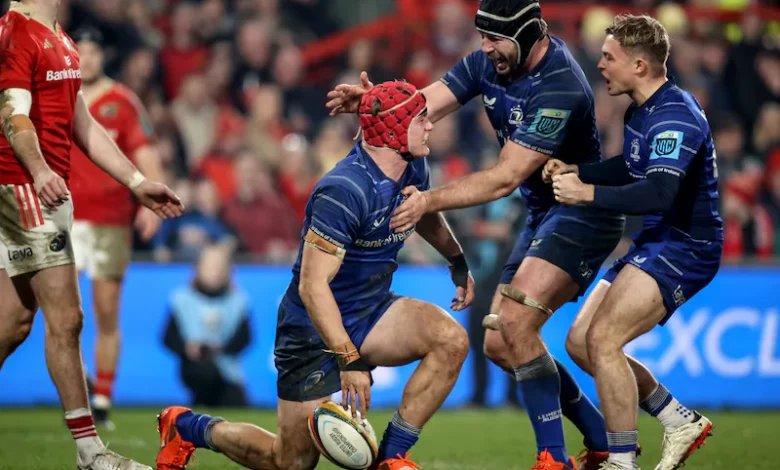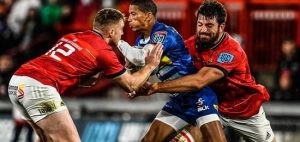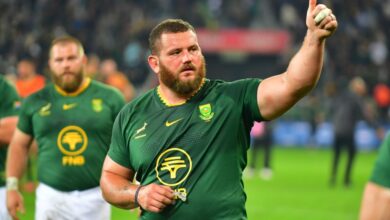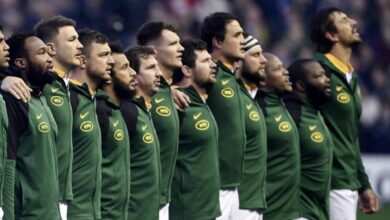Crazy Demand: European Competition Divide Opinion as South African Clubs Face Player Burnout

“The reality, though, is that we have to look after these athletes. They are not robots. They can’t front up every week.
“And, right now, the South African boys are treated like robots.”
Plumtree’s concern relates to what he deems an unrealistic playing and travelling schedule, with the South African teams having to negotiate the Champions Cup and United Rugby Championship concurrently, necessitating numerous trips to the northern hemisphere. This while the Springboks are still participating in the Rugby Championship during the traditional southern hemisphere season, resulting in a continuous 12-month season that places crazy demands on the elite exponents of the game.
A subsequent interview that I conducted with the CEO of SA Rugby, Rian Oberholzer, and, more precisely, his curt response to Plumtree’s gripe, caused a stir of similar magnitude.
“The local clubs should stop complaining and just get on with the job,” Oberholzer told me. “There aren’t many options concerning the scheduling of the tournaments. That is the reality.
“Our teams want to compete in professional leagues, which the URC and Champions Cup offer. We must accept it for what it is, plan accordingly and make the best of it.”
Oberholzer added that South African clubs should refrain from constant criticism of competitions in the northern hemisphere.
“There are clubs in the EPCR leagues who don’t want us there,” he said. “We shoot ourselves in the foot by continuously blasting competitions we participate in on invitation.
“It is our lifeblood at the moment. Remember, we were booted from Super Rugby, and if it weren’t for the URC and EPCR leagues, we would have had only the domestic Currie Cup competition to play in.”
Oberholzer does put a sobering and, of course, corporate spin on the complaints regularly raised, since the former Super Rugby outfits of South Africa traded the southern hemisphere showpiece for the greener grass north of the equator four years ago, by the likes of Plumtree, Jake White (Bulls) and John Dobson (Stormers).
However, one cannot help but have sympathy for Plumtree’s plight.
Injuries and resting protocols, as stipulated by SA Rugby, forced Plumtree in December to take on Leicester without a host of the Durban-based side’s superstar Boks.
We cannot be a full-strength side all the time. We can win without the Boks, but it’s hard to win without all of them
No doubt, the likes of Siya Kolisi, Lukhanyo Am, André Esterhuizen, Makazole Mapimpi, Grant Williams, Eben Etzebeth, Vincent Koch, Bongi Mbonambi and Ox Nché, had they played, would have made a world of difference at Welford Road.
The astounding arsenal of talent on the Sharks’ books, which include almost a full team of Rugby World Cup winners, actually suggests that they should be favourites to walk it in the Champions Cup.
Without their Bok bruisers, though, the Sharks expose themselves to the type of mauling suffered against the Tigers. The reality is that Plumtree cannot field his international contingent for every game.
“When we are at full strength, we are a powerful side, and that is what you need in competitions like these,” he observed.
“However, we cannot be a full-strength side all the time. We can win without the Boks, but it’s hard to win without all of them.”
The Bulls and Stormers are in the same predicament, although not on the exact scale as the Sharks, with Bulls and former Bok boss Jake White comparing the Champions Cup to Test rugby played in club colours.
With some Boks back in harness, the Sharks bounced back from their implosion at Welford Road to scrape through 21-17 against the Bulls in a tough URC derby a week later but succumbed 20-24 to the Stormers in their last game of the year on December 28th.
Although that loss isn’t the end of the world as far as the Sharks’ URC aspirations are concerned, they did lose another two Boks – Aphelele Fassi and André Esterhuizen – to injury, prompting Plumtree to renew his “robot” narrative.
“Unless these guys are managed properly, and you might not see it straight away, there will be an accumulation over time,” he warned.
“With the next World Cup coming up in under three years, there is a danger of some of our older athletes not making it.
“It is something that we have to look at, and it’s not something a coach should get into trouble for talking about.”
Back-to-back SA Rugby Player of the Year, Eben Etzebeth, is a case in point.
Astonishingly, the 33-year-old ”enforcer”, who recently became the most-capped Bok with a tally of 131, appeared in 12 of South Africa’s 13 Tests in 2024.
However, Etzebeth has turned out only once for the Sharks since returning from the Autumn Nations Series in November, in the Champions Cup encounter with Exeter Chiefs when he also suffered a concussion. Plumtree put the extended absence down to Etzebeth’s body being “a little bit broken”.
“Eben looks a bit dented, to be honest. We need to freshen him up.”
To be brutally honest, neither the Sharks nor the Springboks ever look quite the same without Eben Etzebeth leading the charge.



